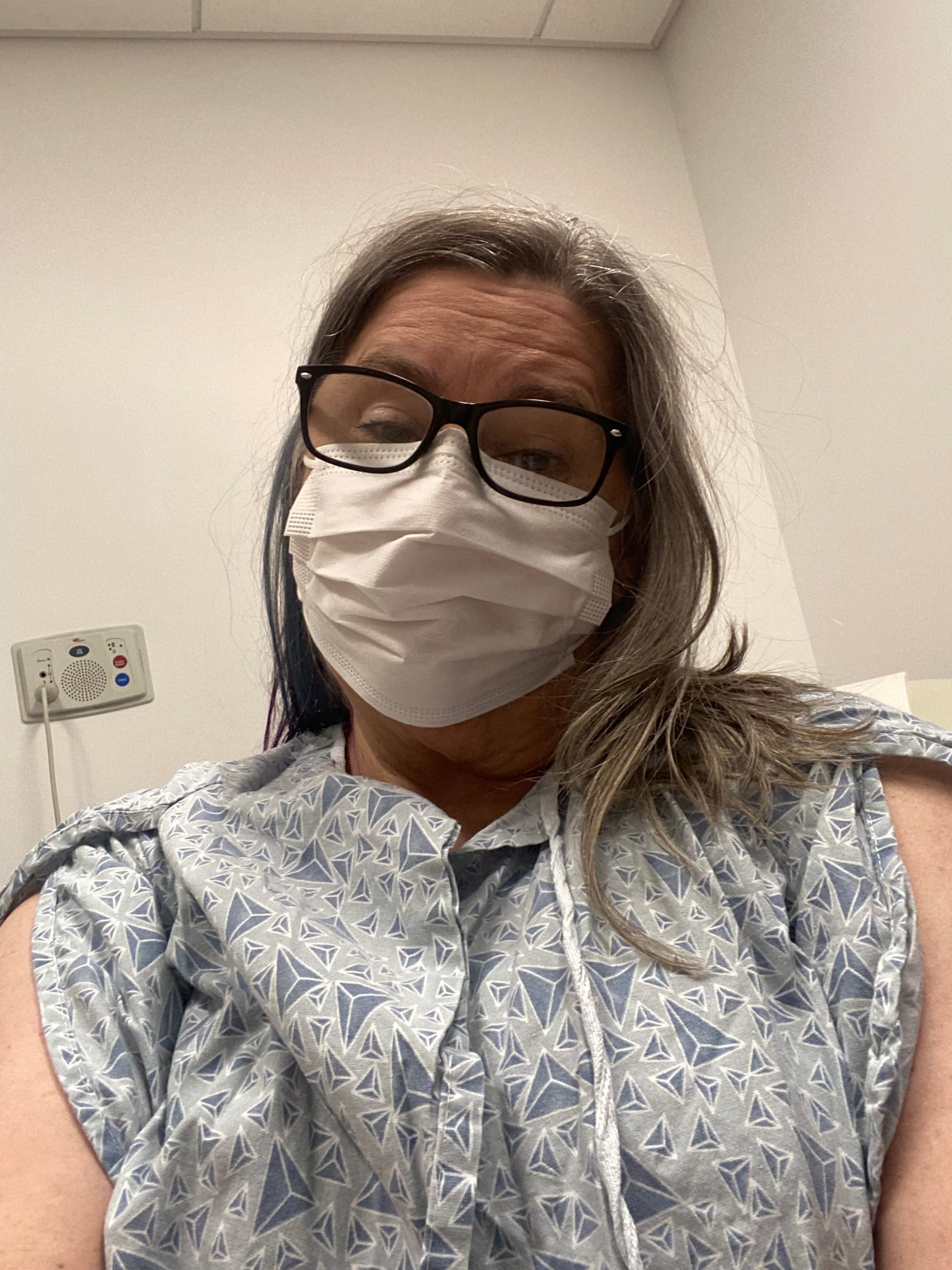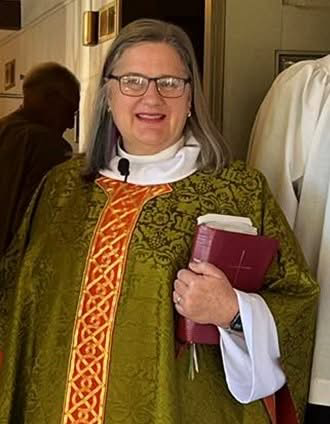Not a Drill
A prompt to encourage your practice of creativity this week from Riversider and local author Larry Burns.
As Breast Cancer Awareness Month closes, local survivors and medical experts emphasize the life-saving power of early screening.
One in eight women in the United States will be diagnosed with breast cancer in their lifetime. For women facing these odds, early detection through routine mammograms and self-examination can mean the difference between minimal treatment and life-altering surgery.
As Breast Cancer Awareness Month draws to a close, local survivors are sharing their stories to underscore a critical message: regular screening and body awareness save lives.
"Early detection was absolutely key to my overall prognosis and treatment plan," said The Reverend Canon Kelli Grace Kurtz of All Saints' Episcopal Church in Downtown. "It meant the difference between a total mastectomy and a complex double lumpectomy."
Kurtz was 59½ when a routine mammogram detected a suspicious spot that would lead to her diagnosis. Without that screening, she might have faced the same fate as her mother and aunt, who both required mastectomies after detecting cancer at later stages.


Left: Mother Kelli Grace Kurtz during cancer treatment. Right: Healthy and radiant on a bright sunny morning at All Saints Episcopal Church.
For Lindy Pardee, wife of The Gazette's founder and publisher Justin Pardee, the discovery came differently. At just 40 years old in March 2022, she noticed a small lump in her breast despite feeling "really good" overall. That self-examination revealed breast cancer that had metastasized to her liver.
"I went from rarely needing to see a doctor to being at the hospital 2-4 times a week or more," Pardee said. "It turned my busy mom of four life upside down."
According to Dr. Candice Ruby, Chief of Hematology and Oncology at Kaiser Permanente Riverside County, breast cancer affected approximately 310,720 women last year in the U.S. and caused more than 42,250 deaths, according to the American Cancer Society.
"There is a higher chance of cure when it is detected at an early stage and has greater potential to respond to treatment," Ruby said.
While most breast cancers are found in women 50 years or older, younger women aren't immune. The Centers for Disease Control and Prevention reports that about 10% of all new cases in the U.S. are found in women younger than 45. Men can also develop breast cancer, though it accounts for less than 1% of cases.
At Kaiser Permanente, women with average breast cancer risk have the option of receiving mammograms every one to two years once they turn 40. For women with above-average risk, screening recommendations may vary.
"Routine screening mammograms are essential because they can detect tumors before you ever feel them," Kurtz said. "And early detection results in a much higher survival rate."
Pardee's experience underscores the importance of combining professional screening with personal vigilance. "I recommend getting scanned early, often, when you feel good and when you don't," she said. "Checking your body for changes regularly is so important. I also recommend advocating for yourself if you feel like something is not right in your body."
According to the CDC, symptoms can vary among women, while some may have no symptoms at all. Warning signs include:
"If you have any symptom or concern, it is important to reach out to your doctor right away so that you can be evaluated," Ruby said.
While factors like aging and family history can't be controlled, the CDC notes that women can help lower their risk through lifestyle choices:
Kurtz has become more conscious of her overall health since her diagnosis. "I am much more aware of my overall health these days and much more willing to do the routine doctor's visits, blood tests, and such," she said, noting her increased focus on "superfoods that help in the fight: broccoli, blueberries, low fat, high protein."
Local support systems have proven invaluable during the cancer journey. Kurtz credits both City of Hope for her treatment and her congregation at All Saints' Episcopal Church for providing crucial support through meals, transportation and prayers.
Pardee found strength through faith and community during her treatment journey. "Because I decided to lean on my faith and invited my friends into prayer I experienced a miraculous removal of overwhelming fear as well as miraculous test results that confused my doctors in the best way possible," she said. She completed chemotherapy in June 2022, and her liver has remained clear since then. After an area of concern appeared in the same breast location earlier this year, she chose to have a mastectomy and is now "feeling wonderful and full of energy again."
"I'm so grateful to have a support system like my husband, family, friends and community," Pardee said. "They really showered me with the support I needed during those times."


Left: Lindy Pardee with daughter Cosette before final chemotherapy treatment, June 1, 2022. Right: Cancer-free at Riverside Poly High School's pink-out football game for Breast Cancer Awareness Month, October 2025.
The message from both women is clear and direct.
"You have choices. But you need to know what you are facing," Kurtz said. "Feel all the feels, but then go to work on advocating for yourself and others."
For women who think "it won't happen to me," both survivors offer sobering reminders. Kurtz, whose mother and aunt had later-stage diagnoses, is now direct with her own daughters: "You must do ongoing routine screen mammograms as often as your insurance will allow."
Pardee's diagnosis at 40 while feeling healthy serves as another wake-up call. "I definitely wasn't expecting a breast cancer diagnosis," she said, emphasizing the importance of both professional screening and personal vigilance regardless of how one feels.
As Breast Cancer Awareness Month concludes, these Riverside women's experiences illuminate a vital truth: Early detection through both routine mammograms and regular self-examination provides the strongest defense against breast cancer.
Let us email you Riverside's news and events every morning. For free!